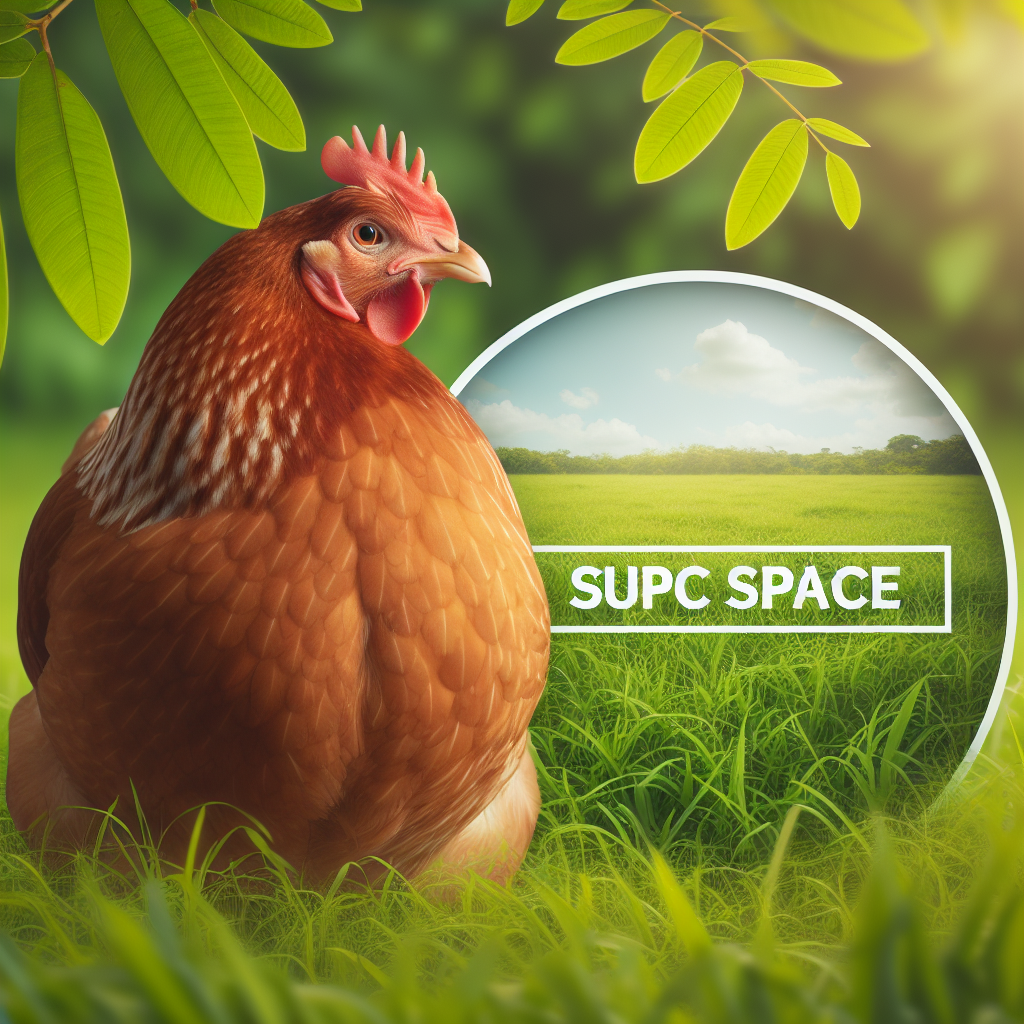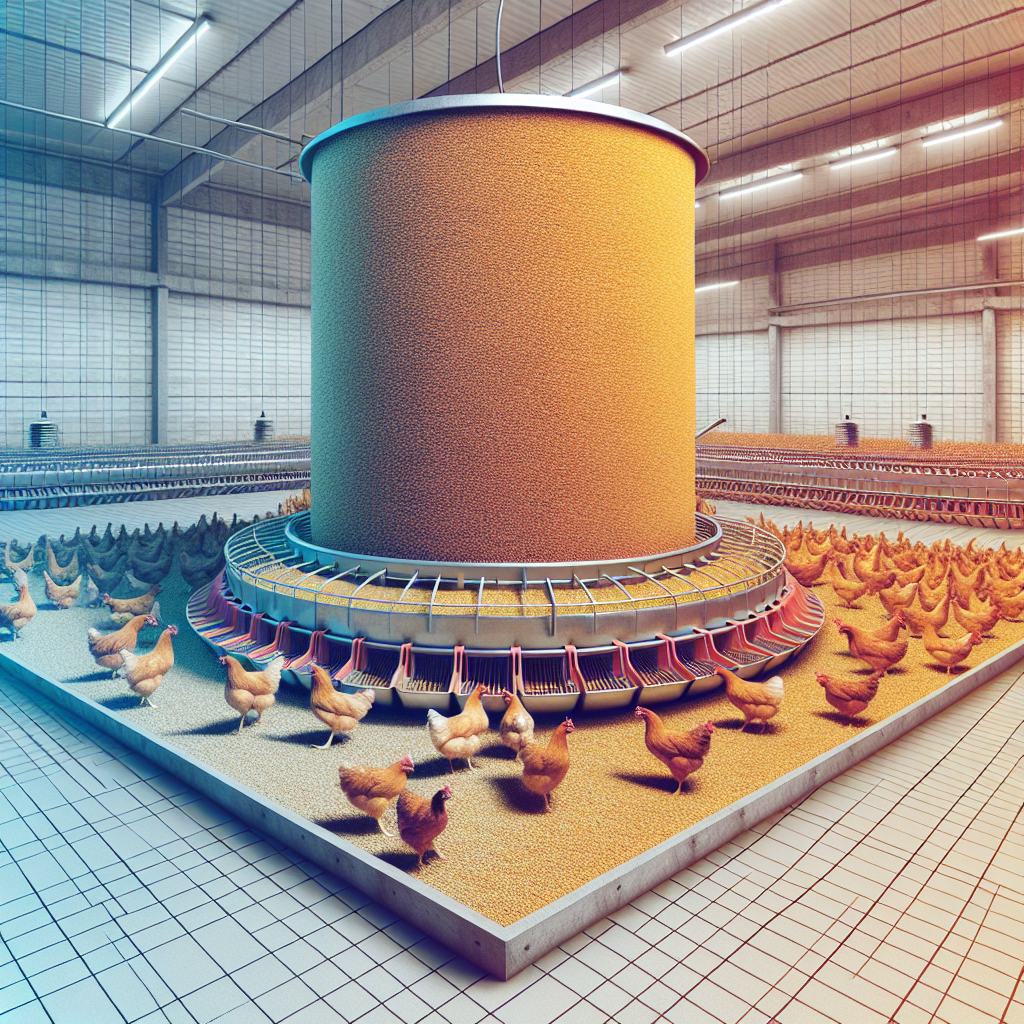Have you ever wondered how the amount of space your chickens have can affect their well-being and happiness? It turns out that providing your feathery friends with the right amount of space is vital for their overall health and contentment. In this article, we will explore the impact of space requirements on the well-being and happiness of your chickens, and learn why giving them enough room to roam and express their natural behaviors is essential for their overall quality of life. So, let’s delve into the world of poultry and discover how space can truly make a difference in the lives of our beloved chickens.
Effects of Space on Chicken Well-being
Keeping chickens is a rewarding and fulfilling hobby, and their well-being should be a top priority for any chicken owner. One crucial aspect of chicken well-being is the amount of space they have available to them. Adequate space not only ensures their physical health but also provides mental stimulation and promotes positive social interaction. Let’s explore each of these effects in detail.
Physical Health
Providing sufficient space for your chickens is essential for maintaining their physical health. Overcrowding can lead to a range of health issues, such as respiratory problems and the spread of diseases. It is crucial to prevent overcrowding by ensuring that each chicken has enough space to move around comfortably.
Furthermore, enough space allows chickens to engage in regular exercise, which is vital for their overall fitness. Just like humans, chickens need to stretch their legs and flap their wings to stay healthy. Space constraints can restrict their movement and eventually lead to muscle atrophy and obesity. By providing ample space, you enable them to engage in natural behaviors and maintain a healthy weight.
Lastly, adequate space helps to prevent injuries among chickens. When crowded, chickens may become aggressive towards each other, resulting in fights and pecking. This can lead to injuries such as feather loss, wounds, and even cannibalism in severe cases. Proper space allocation minimizes the chances of these aggressive behaviors, allowing chickens to coexist harmoniously.
Mental Stimulation
Chickens, like any other living creatures, require mental stimulation to lead fulfilling lives. Without adequate mental stimulation, they can become bored and frustrated, leading to behaviors such as feather picking and aggression. Sufficient space provides opportunities for chickens to engage in natural behaviors, such as scratching the ground, dust bathing, and exploring their surroundings.
Access to a spacious environment allows chickens to express their natural instincts and behaviors. Foraging for insects and pecking at the ground is not only entertaining for them but also provides mental stimulation. Additionally, a diverse environment with different objects and structures encourages exploration and keeps chickens mentally engaged.
To further enhance mental stimulation, consider providing enrichment opportunities in their living area. This can include hanging treat-filled toys, providing perches at different heights, and placing objects like logs or branches for them to jump on. These simple additions can provide endless entertainment for chickens, preventing boredom and promoting their overall well-being.
Social Interaction
Chickens are highly social animals and thrive in environments that encourage positive social interactions. Providing sufficient space allows chickens to establish and maintain hierarchical structures within their flock. Hierarchies are a natural part of chicken social dynamics and play a crucial role in reducing aggression and establishing order.
Adequate space helps to prevent feather pecking and cannibalism, which can occur when chickens feel stressed or crowded. When given enough space, chickens can establish their territories and maintain a comfortable distance from one another, minimizing the likelihood of aggressive behaviors.
Furthermore, sufficient space promotes flock bonding and cooperation. Chickens are known to engage in activities such as grooming, preening, and roosting together, which strengthen their social bonds. With ample space, they have the freedom to engage in these activities and form strong social connections within the flock.
Determining Adequate Space Requirements
The optimal amount of space for your chickens depends on several factors, including the chicken breeds, size of the flock, chicken age, activity level, and access to outdoor space. Let’s explore each of these factors to help you determine the appropriate space requirements for your chickens.
Chicken Breeds
Different chicken breeds have varying space requirements due to their size and activity levels. Larger breeds generally require more space to move around comfortably, both inside the coop and in outdoor areas. Active breeds that tend to be more energetic may also benefit from additional space to exercise and burn off excess energy.
When selecting chicken breeds, consider their space needs and make sure your coop and run can accommodate their specific requirements. Researching breed-specific space recommendations will ensure that each chicken has enough room to thrive.
Size of the Flock
The number of chickens in your flock also plays a role in determining the space requirements. As a general rule, each chicken should have a minimum of 4 square feet of indoor space in the coop and 10 square feet of outdoor space. These recommendations provide enough room for chickens to move around comfortably and engage in natural behaviors.
It’s important to note that overcrowding can lead to stress, disease spread, and behavioral issues. By adhering to appropriate space guidelines, you can maintain a healthy and harmonious flock.
Chicken Age
The space requirements for chickens vary depending on their age. Young chicks require a brooder with enough space to move around freely and access food and water easily. As they grow, they will require more space to accommodate their increasing size and energy levels.
Determining optimal space requirements for growing chickens can be achieved by gradually expanding their living area. Starting with a small, secure space and gradually increasing the available space as they grow will allow them to adjust comfortably.
Activity Level
Consider the activity level of your chickens when determining space requirements. Some breeds, such as Mediterranean breeds, are known for their high energy levels and constant movement. These active breeds may benefit from additional space to satisfy their natural tendencies and prevent restlessness.
By observing your chickens’ behavior and energy levels, you can gauge whether they may require more space to accommodate their activity levels. Providing opportunities for exercise and movement, such as perches, ramps, and platforms, can also help satisfy their energetic needs.
Access to Outdoor Space
Allowing chickens access to outdoor space is highly beneficial for their overall well-being. Free-range access provides them with a more natural environment, access to fresh air and sunlight, and opportunities for foraging. However, it’s essential to ensure safety and security when providing outdoor access.
Predators and environmental hazards can pose risks to free-ranging chickens. Therefore, it’s important to construct secure fencing and shelters to protect them from potential harm. Balancing the indoor and outdoor space by providing a well-designed run or an enclosed outdoor area can allow chickens to safely enjoy the benefits of the outdoors while minimizing risks.
In conclusion, providing adequate space for your chickens is vital for their well-being and happiness. It impacts their physical health, mental stimulation, and social interaction. By considering factors such as chicken breeds, flock size, age, activity level, and outdoor access, you can determine the appropriate space requirements for your chickens. Ensuring they have enough space to thrive will result in healthier, happier chickens that can lead fulfilling lives. So, go ahead and create an environment that gives your feathered friends room to spread their wings and live their best chicken lives!




